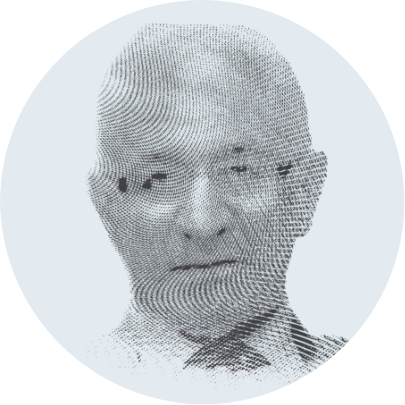In a televised interview, Lebanese Prime Minister Nawaf Salam sought to outline a vision for bringing the state back into the sovereignty equation and breaking the link between the logic of the state and the logic of force. He insisted that decisions of war and peace must be made by the government alone, and that the era of foreign guardianship is over. Lebanon, he said, cannot stabilize unless a state monopoly on armament is restored, with security and military decisions reclaimed by its institutions.
Salam also linked sovereignty to economic reform, stressing that there can be no recovery without political and security stability. Confidence cannot be restored, he explained, so long as Lebanon remains associated with non-state armed groups, as official institutions share a mandate with these illegitimate actors. In an attempt to maintain a delicate balance between advocating sovereignty and political realism, Salam was careful not to attack Hezbollah directly; instead, he emphasized the need for state authority without inflaming domestic strife or violent chaos.
Salam’s remarks seemed suspended somewhere in the gap between tangible reality and abstract possibilities. Indeed, the positions that Hezbollah has consistently reiterated are a constant reminder of this gap. The party regularly doubles down on its insistence on maintaining arms and its right to resistance. In fact, Hezbollah is refusing to even discuss disarmament or to link its arms to the ceasefire, stressing that such demands are nothing but an effort to strip the party of its only deterrence in the face of Israel.
The discrepancy between this rhetoric and that of the government is evident. The latter continues to affirm decisions are made in Beirut, and that the state respects and will implement Resolution 1701. The party’s discourse and practices prove that the battle is being overseen and managed from the South in cooperation with a regional axis. This growing divergence illustrates the essence of the problem: Lebanon’s sovereignty is being undermined. The state has been failing to turn its security, economic, political, and social rhetoric into reality on the ground.
To begin with, its deficient sovereignty is reflected by the state’s failure to implement Resolution 1701 since 2006. Its failure to act on this Resolution for even a single day has allowed the party to consolidate its positions on the ground, stockpile weapons, and conduct military training in the south and beyond, empowering it to dominate national politics and wage wars, the latest being its “distraction and support” campaign. But the challenge of reclaiming sovereignty is not solely a military matter. Hezbollah has succeeded in building a parallel economy independent of the state. Built on financing networks and social services, the most notable component of this network is the Qard al-Hasan Association, which provides its constituency with banking services from outside the banking system. The authorities have yet to shut it down, and if reports that one billion dollars have been sent to Hezbollah in 2025 (which have coincided with the visit of a US Treasury delegation to Beirut) are accurate, then the state’s financial oversight has collapsed.
Foreign funding is not new. Nonetheless, it is more dangerous today. Given that we have a bankrupt state, this money renders the party stronger than its national institutions. Indeed, Lebanon has failed to secure far less than a billion dollars in aid. Moreover, this sum would empower the party and its economic sovereignty.
The political dimension of the sovereignty deficit is no less dangerous. The party’s grip on state institutions, from the bottom up, has stripped the state of its role as a balancing force and undermined its control over its own institutions. Parliament is being stifled as legislation is suspended; the cabinet is being sabotaged by conflicting loyalties; the president is trying to hold the stick from the middle and appease state, partisan, and sectarian forces. Since the Pax Syriana era, Hezbollah has expanded its influence within state institutions and administrative, security, and military apparatuses. It has thereby succeeded in obstructing any serious attempt to reclaim national decision-making.
The deeper dimension of this struggle, however, is cultural and social. The party has not consolidated its power through weapons alone. It has also done so through an integrated system of services: education, welfare, religion, and media. That has granted it control over its community, building a solid social base committed to its ideological and political worldview. Its dominance has thus become a form of symbolic hegemony that reproduces loyalty, relying not only on intimidation but also on persuasion and identity, undermining unified national allegiance.
In this landscape, the battle to restore sovereignty in Lebanon appears to go far beyond reclaiming decisions of war and peace. The crisis is no longer limited to non-state arms. It is deep-rooted in the economy, public administration, culture, and social networks, producing a complex state of affairs, with the duality of sovereignty founded on the monopolization of Shiite representation. Even if the Council of Ministers retains its authority and decides security decisions, Lebanon’s sovereignty would remain deficient so long as the bodies making financial oversight decisions are infiltrated, political decision-making is constrained, legislation is hijacked, and the social fabric is ripped apart by competing loyalties. Salam sought to redefine the position of the premiership as a mediator rather than an administrator. He put forward a coherent sovereign discourse rejecting subordination; unfortunately, he also keenly avoided confrontation.
The real challenge today lies not only in reclaiming decisions of war and peace. The state must become the sole source of legitimacy, trust, and belonging. Lebanon will not rise from its crisis until the discourse around sovereignty becomes an institutional reality, with its fragile balance of forces safeguarded by a consensus around a national project that restores to the state’s sole authority over national decisions and their execution. Otherwise, sovereignty will remain a slogan echoed by officials who lead hollowed-out institutions.
